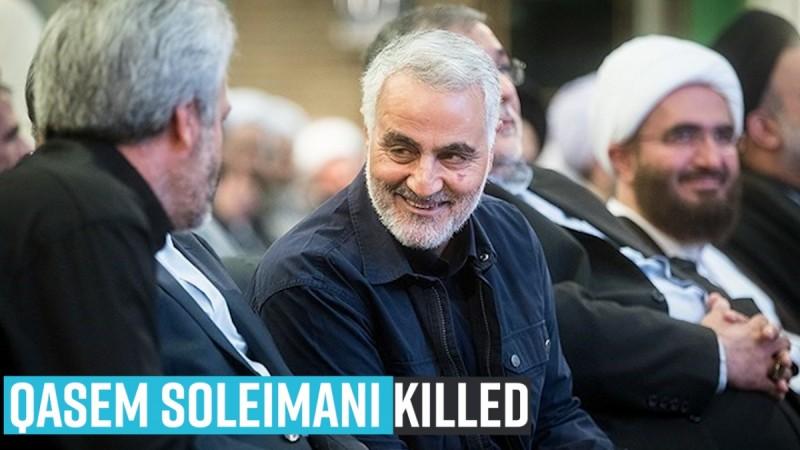The killing of Iranian General Qassem Soleimani by the United States in Iraq was an act of "international terrorism," Iranian Foreign Minister Mohammad Javad Zarif said on Friday according to state TV. "It was an extremely dangerous, foolish escalation ... He was the most effective force fighting against Islamic State and al Qaeda terrorists," Zarif said.

Meanwhile, after Soleimani's targeted killing, newsrooms struggled with the question: "Had the United States just carried out an assassination? And should news stories about the killing use that term?" reports AP.
The United States and Iran have long been engaged in a shadow war in the Middle East and elsewhere. However, the US has never declared formal war on Iran. So the targeted killing of a high Iranian state and military official by a surprise attack was "clearly an assassination," said Mary Ellen O'Çonnell, an expert in international law and the laws of war at the University of Notre Dame School of Law.
Iran threatens retaliation
Soleimani was killed by the US forces in an air raid at Baghdad International Airport. Abu Mahdi al-Muhandis, the deputy commander of Iran-backed militias known as the Popular Mobilisation Forces (PMF), was also killed. Iran has threatened severe retaliation.
The rockets landed near the air cargo terminal, burning two vehicles, killing and injuring several people.
The Pentagon said the drone attack came "at the direction of the president". The defence department statement sought to justify Soleimani's killing by citing his Quds Force role in the deaths of hundreds of American and coalition service members and the wounding of thousands more in Iraq and Afghanistan.
Who was Qassem Soleimani?
Soleimani, who has led the foreign arm of the Revolutionary Guards and has had a key role in fighting in Syria and Iraq, acquired celebrity status at home and abroad.
He was instrumental in the spread of Iranian influence in the Middle East, which the United States and Tehran's regional foes Saudi Arabia and Israel have struggled to keep in check.
He survived several assassination attempts against him by Western, Israeli and Arab agencies over the past two decades.








